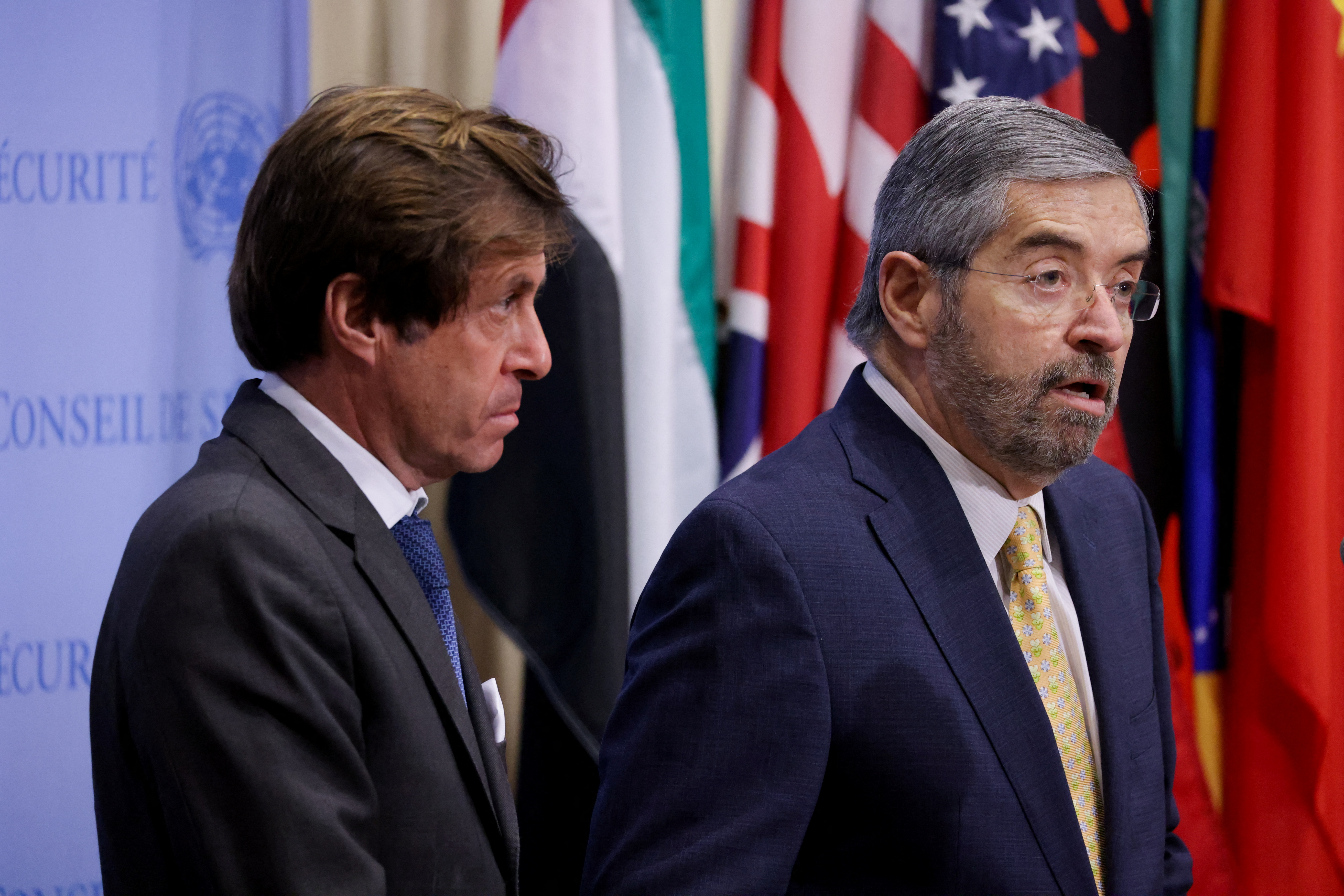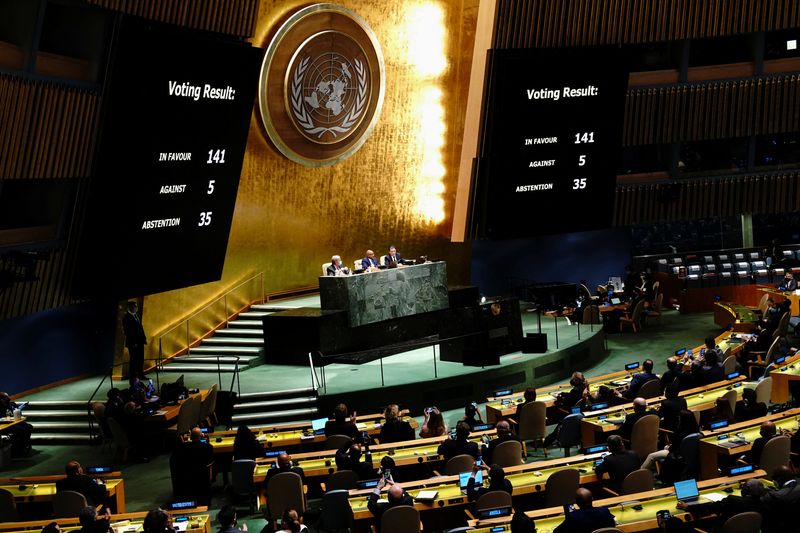
The ambassadors of Mexico and France to the United Nations (UN) announced that they are working on a draft resolution for humanitarian aid in Ukraine, which will be presented to the General Assembly, in response to attacks by Russian troops on Ukrainian territory since the end of February.
It was before the General Assembly instead of the Security Council, because in the latter Russia has the power of the veto. In addition, resolutions voted on in the General Assembly are not binding, that is, they do not require compliance. Although there is still no specific date for the vote, the French ambassador to the UN, Nicolas de Rivière, pointed out that, “the sooner, the better.”
He also recalled that more than 2.8 million people have left Ukraine because of the conflict with Russia, while about 1.8 million have been forced to move within the country. “We are witnessing the worst humanitarian crisis in Europe since World War II,” he said. He added that, since the first Russian attacks, the World Health Organization has recorded at least 31 attacks on health units.

For his part, his Mexican counterpart, Juan Ramón de la Fuente, explained that the project will focus and will have as priority the humanitarian issue. The objective, they detailed, is the immediate “cessation of hostilities” in order to protect the civilian population.
De la Fuente assured that several Member States have contacted them to participate and get involved in the project. “In order to allow the international community to convey a vigorous and united message, we have decided to take our initiative to the General Assembly,” explained the former rector of the highest school of studies.
Given these comments, both ambassadors questioned whether they chose to take the draft to the General Assembly because they know in advance that they cannot pass through the Security Council. “Are you worried about the veto?” , questioned a reporter.

Juan Ramón decided to remain silent and his French counterpart had to take the floor. “Obviously it would have been difficult in the Security Council, we don't need to explain why,” de Rivière replied.
Resolutions are measures taken regularly in discussion forums or thematic issues, which reflect the views or will of the States members of the General Assembly. In addition, they provide policy and policy recommendations to the United Nations Secretariat.
It should be recalled that on March 2, the UN General Assembly adopted a resolution condemning Russia's invasion of Ukraine, with 141 votes in favor (including Mexico), 5 against and 35 abstentions. For this new resolution to be adopted, two thirds of the votes are needed in favor of the 193 members of the General Assembly (abstentions do not count).
Meanwhile, Vassily Nebenzia, Russian Ambassador to the UN, did not share the fact that Mexico and France have not put the draft resolution to the vote after two weeks of discussions and chose to submit it directly to the General Assembly.
KEEP READING:
Últimas Noticias
Debanhi Escobar: they secured the motel where she was found lifeless in a cistern
Members of the Specialized Prosecutor's Office in Nuevo León secured the Nueva Castilla Motel as part of the investigations into the case

The oldest person in the world died at the age of 119
Kane Tanaka lived in Japan. She was born six months earlier than George Orwell, the same year that the Wright brothers first flew, and Marie Curie became the first woman to win a Nobel Prize

Macabre find in CDMX: they left a body bagged and tied in a taxi
The body was left in the back seats of the car. It was covered with black bags and tied with industrial tape
The eagles of America will face Manchester City in a duel of legends. Here are the details
The top Mexican football champion will play a match with Pep Guardiola's squad in the Lone Star Cup

Why is it good to bring dogs out to know the world when they are puppies
A so-called protection against the spread of diseases threatens the integral development of dogs




